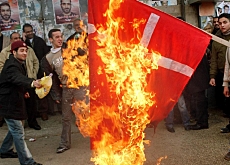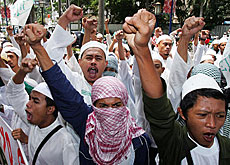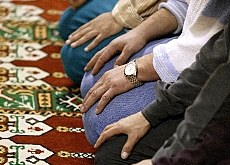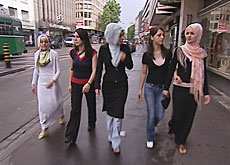Mohammed row leads to media soul-searching

The Mohammed cartoons affair has triggered a debate in Switzerland over press freedom and respect for religious sensitivities.
While Swiss Muslims have reacted with dismay to the publication of the controversial caricatures, the head of the Swiss Press Council, Peter Studer, says the rights of the press must be protected.
The controversial images originated in Denmark’s Jyllands-Posten paper and some were reprinted this week in newspapers in Switzerland, France, Germany, Italy, Hungary, the Netherlands and Spain, after the Danish paper apologised.
This gesture of media solidarity has provoked a wave of protests in Muslim countries and fuelled the debate on the balance between freedom of the media and respect for religion.
One Swiss daily, the Tages-Anzeiger, said the cartoons “were used in the current climate of increasing animosity towards foreigners in Denmark specifically to stoke resentment”.
But Studer pointed out that it was quite clear that the figure of Mohammed depicted in the cartoons was not the same prophet revered by scholars of Islam and the vast majority of Muslims.
“That is an extremely important distinction,” he said. “This Mohammed [in the caricatures] is the one invoked by violent Islamists.”
Blasphemy
The fact that the European press has published images of Mohammed at all is in itself seen by Muslim protesters as blasphemy and disrespect.
Renowned Swiss cartoonist Chappatte told swissinfo that absolute positions of principle should be avoided in this affair to allow the real debate on freedom of expression to take place.
“For me, as a newspaper cartoonist, freedom of expression is something visceral. And in Islam, the representation of Mohammed is absolutely forbidden, therefore that also touches the visceral.”
Chappatte cast doubt on the motives behind the original publication of the cartoons by Jyllands-Posten.
“The aim was to depict Mohammed precisely because he is a forbidden subject. It’s as if they were saying to Muslims: ‘Look it’s your taboo! As for me, I am free to do what I want’. One shouldn’t be naïve, it was a provocation.”
“Personally it would not interest me to provoke for the sake of provocation. Drawing is a weapon, but a weapon one should use with care … In this case I find it a bit cheap to test one’s freedom on the back of someone else’s faith,” Chappatte added.
“Offensive material”
While Reporters Without Borders defended the media’s “right to make fun”, many newspapers argued free speech was not an excuse for gratuitous insults.
“Newspapers are not obliged to republish offensive material merely because it is controversial,” wrote Britain’s Guardian.
Swiss Muslim intellectual Tariq Ramadan said the situation had to be considered from both points of view.
“We have to be very cautious and to say to Muslims: look, take a critical intellectual distance from this, don’t overreact emotionally, you can just express the fact that it’s against your principles and that’s not the way to use freedom of speech,” he told swissinfo.
“On the other side, I really think that [despite freedom of speech] you have to be respectful towards the people.
“You have to understand that European society has changed, that now you have millions of Muslims living in these countries and they are adding a new sensitivity to European culture.”
swissinfo with agencies
According to the 2000 census, 311,000 Muslims live in Switzerland. Most of then come from the Balkans or Turkey.
Numbers have risen in recent years, rising from 2.2% of the population in 1990 to 4.3% in 2000.
The newspaper cartoons – one of which shows the prophet Mohammed wearing a turban shaped like a bomb – have caused an outcry in the Muslim world as Islamic tradition bans depictions of the prophet or Allah.
Some Muslim countries protested through diplomatic channels and Pakistan’s parliament condemned the cartoons on Friday.
Demonstrators took to the streets in many countries to vent their anger against Denmark and Europe.
Danish companies have reported sales falling in the Middle East after protests in the Arab world and calls for boycotts.

In compliance with the JTI standards
More: SWI swissinfo.ch certified by the Journalism Trust Initiative



You can find an overview of ongoing debates with our journalists here. Please join us!
If you want to start a conversation about a topic raised in this article or want to report factual errors, email us at english@swissinfo.ch.